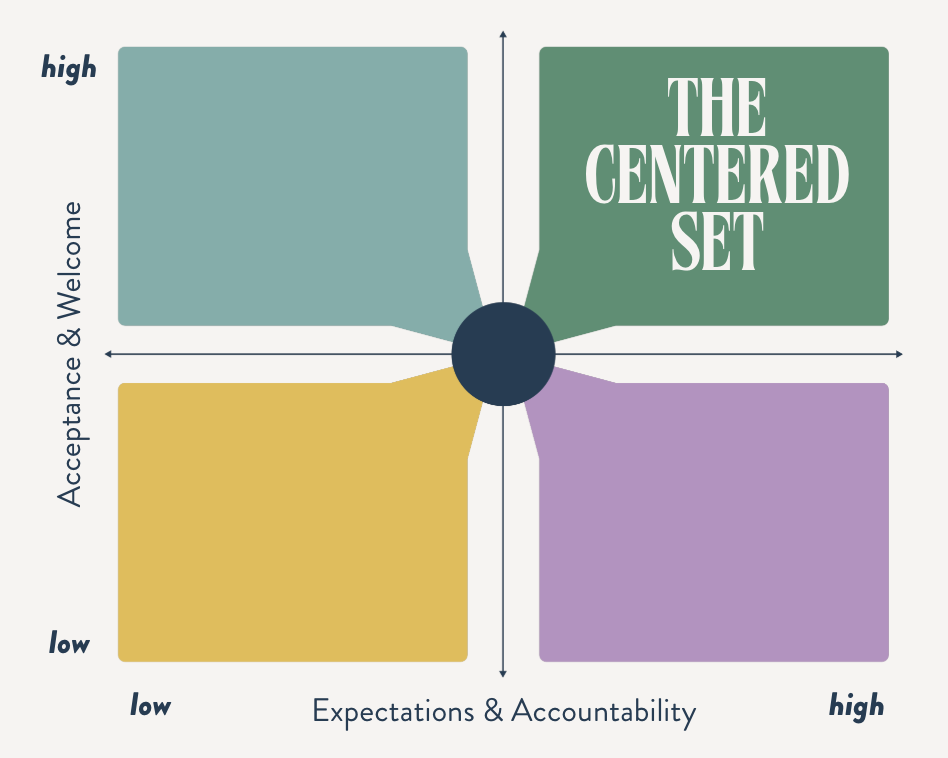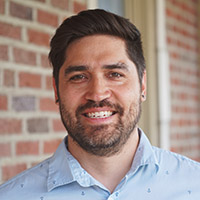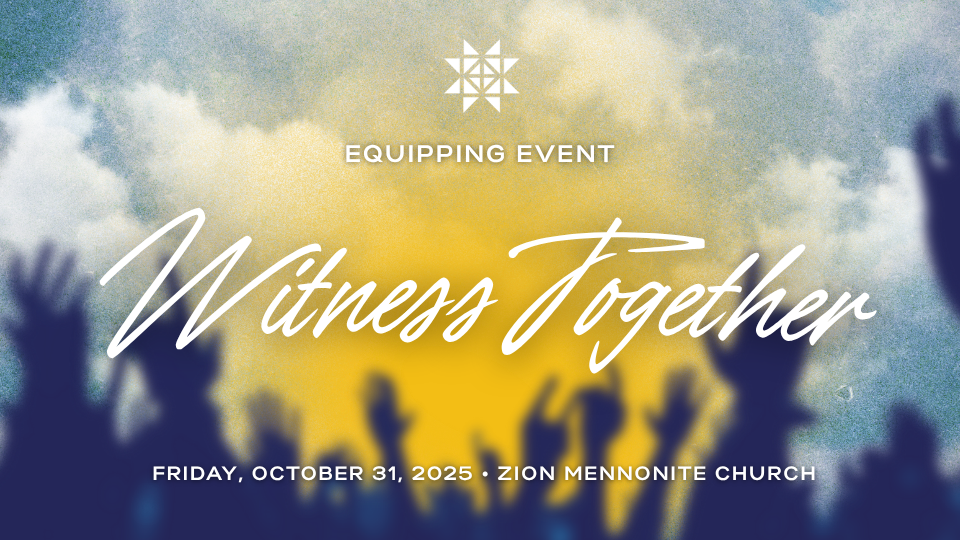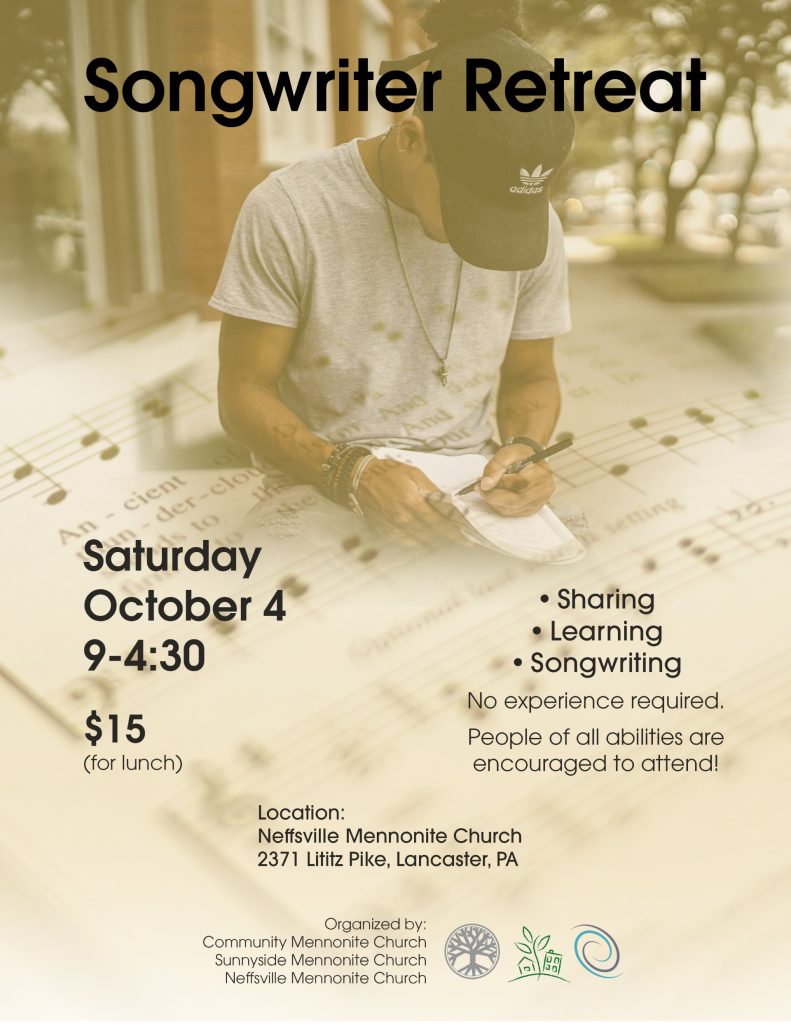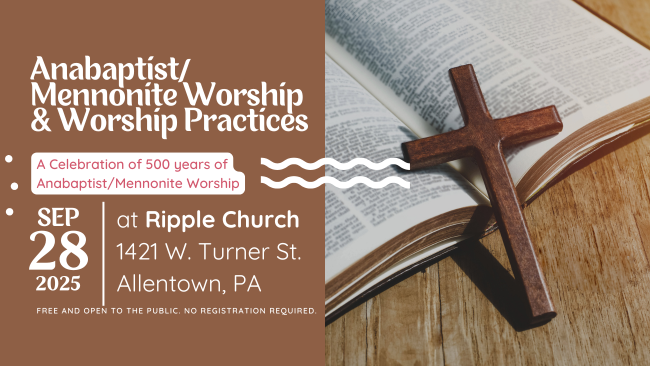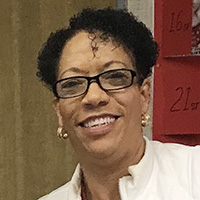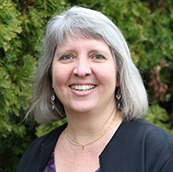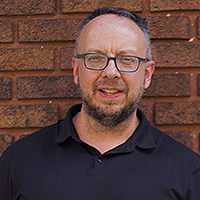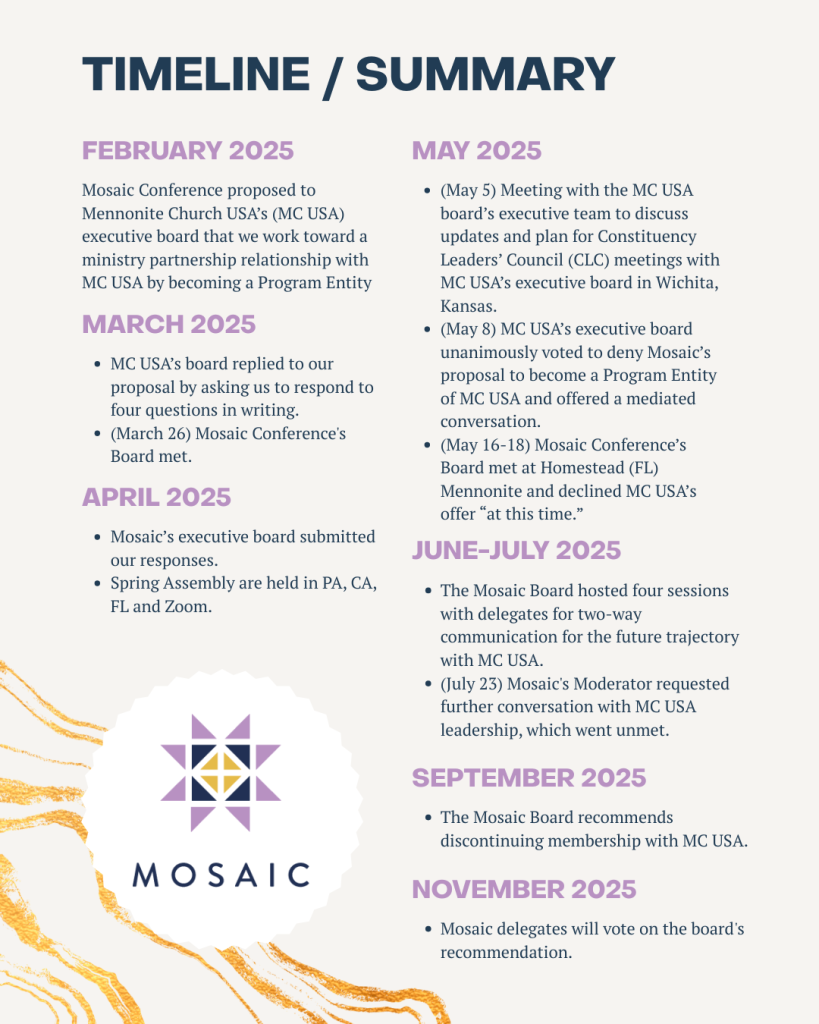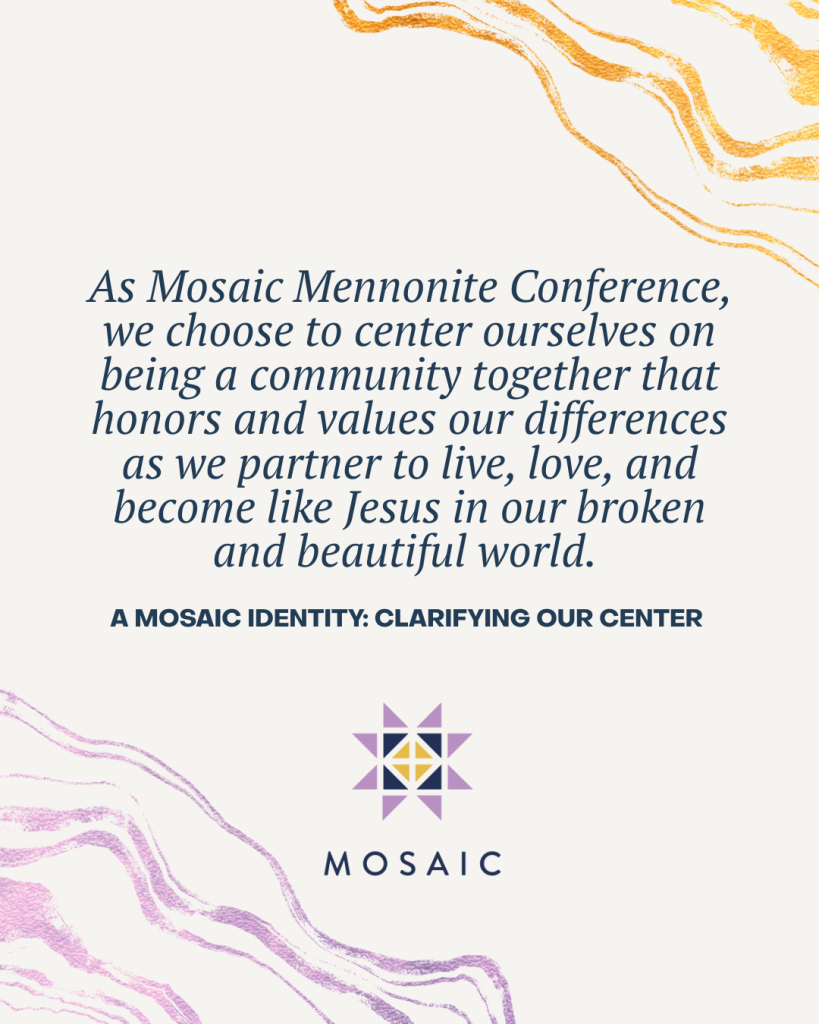At the Fall 2025 Mosaic Mennonite Conference Delegate Assembly, delegates will be invited to affirm several Board members and Committee Chairs for three-year terms. Get to know each of these leaders and their roles below.
The Conference Board supervises the business of the conference, provides leadership to conference committees, and engages in strategic planning to ensure that the conference stays aligned with its vision and responds to the Spirit’s leading into areas of growth and change.
The Nominating Committee ensures that those who fill these roles reflect the gender, racial, cultural, geographic, and historic diversity of the Conference, while also embodying a high level of intercultural competency and diverse giftings.
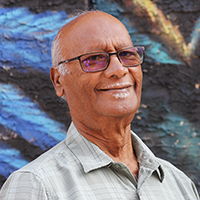
ROY WILLIAMS
College Hill Mennonite (Tampa, FL)
Role: Conference Moderator, beginning Jan. 2026
Since 1985, Roy Williams has served as Pastor of College Hill Mennonite. Williams has served the church in various roles during his career, including Moderator of Mennonite Church USA, Constituency Leadership Council Chair, Vice Chair of Mennonite Education Agency, Moderator of Southeast Mennonite Conference, the Board of Mennonite Publishing, and Urban Ministry Director for Mennonite Mission Network. He has been an evangelist, serving several denominations and independent churches since he was licensed for ministry at age 16 by the Wesleyan Church of Jamaica. Williams has worked as a Senior Vice President of real estate and commercial lending and a Chief Internal Auditor. Roy and his wife, Ruth Leair-Williams, have two children, Sherilee J. Samuel and Rian C. Williams, and four grandchildren. In his free time, Roy enjoys gardening, fishing, and building things.
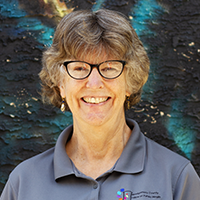
JANET PANNING
Plains Mennonite (Hatfield, PA)
Role: Assistant Moderator, beginning Jan. 2026
Raised in Cincinnati, Ohio, Janet Panning became a Christian at 14 through a Young Life Club. After graduating from Michigan State University, Panning was introduced to Mennonites through the Inter-Menno Program, spending a year in the Netherlands. Janet and her husband Steve spent much of the next 17 years working with MCC in Jamaica and Kentucky and raising two daughters, Megan and Molly. Since 1987, the Pannings have been part of Plains, becoming members in 2004. She has been a member of the Ministerial Committee for many years, with Franconia and Mosaic Conference, and has served as Chair of the committee since 2019. Panning retired in 2024 from the Montgomery County (PA) Office of Public Health and spent 18 years working in refugee resettlement.
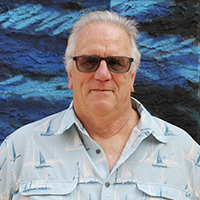
JIM MUSSELMAN
Zion Mennonite (Souderton, PA)
Role: Board Secretary (3rd term)
Jim Musselman was raised in Souderton, PA and worked for Musselman Builders, Inc. from 1979 until his retirement. He served as Moderator of Eastern District Conference from 2016-2019. His wife, Barbara, is a retired Registered Nurse and a certified holistic nurse who worked for 42 years at Abington Hospital in Lansdale, PA. Together they have a son, Matt, a daughter, Kate, and two grandsons, Liam and Gray. Musselman volunteers with Zion’s Table of Plenty and Bean Bag Project, as well as the Conference-Related Ministry Mennonite Heritage Center (Harleysville, PA). He enjoys genealogy, history, traveling, and camping with Barbara in their teardrop camper.
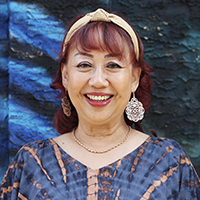
LUCY HANANTO PARSONO
International Worship Center (San Gabriel, CA)
Role: Member-at-Large (2nd term)
Lucy Hananto Parsono is an elder at International Worship Center. She and her husband Alfred live in Hacienda Heights, CA. They have a daughter and three grandchildren who also live in Southern California. Hananto Parsono was born on the island of Sumatra but grew up in Tangerang, Indonesia near Jakarta. Her parents converted to Christianity from Buddhism, and she grew up in the church. She runs an import/export business with trade between the US and Indonesia. She moved to California in the 1980s. She felt encouraged to say yes to joining the Conference Board by family and mentors who said, “this kind of work is your life.” She loves to serve the church, and the board is a way to serve and learn within Mosaic. She receives strong affirmation for her role from Leadership Ministers Aldo Siahaan and Jeff Wright and her brother, Buddy Hananto, pastor at IWC.
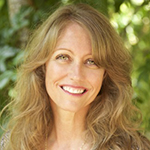
JENNY FUJITA
Blooming Glen (PA) Mennonite
Role: Member-at-Large (1st term)
Jenny Fujita is a credentialed itinerant preacher and former pastor with Mosaic Conference. She holds a master’s in theology with a focus in Anabaptist studies from Northern Seminary and a Certificate in Theology and Ministry from Princeton Theological Seminary. She is a partner with Fujita & Miura Public Relations, Inc., a Hawaii-based strategic communications consulting firm. She is also the Vice President of Friends of Jesus Collective, a relational network of Anabaptist leaders and churches worldwide. She grew up in Bucks County, PA and Puerto Rico and now lives in Coopersburg, PA.
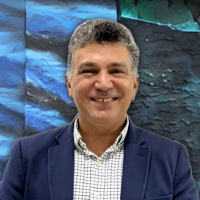
HAROLDO NUNES
Resplandece Mennonite (Pembroke Pines, FL, Colombia, and hybrid)
Role: Member-at-Large (1st term)
(Former Chair of the Conference-Related Ministries Committee)
Haroldo Nunes is an ordained pastor within Mosaic Conference in leadership within Resplandece Mennonite. He graduated from Universidade Federal do Pará in Brazil, from seminary classes at Mennonite Education Agency, and now is in post-graduate studies at Anabaptist Mennonite Biblical Seminary. He is married to Esmirna, who is originally from Bolivia. They have three young adult children. Nunes spent 17 years in Wayne County, Ohio, leading Salem Mennonite in Wooster for 13 years, and as executive director of Open Arms Hispanic Ministries for 17 years. He worked with immigrants from Latin America, accompanying and helping them with material and spiritual needs. The Nunes family moved to Florida in 2023 and currently lives in Sarasota county.
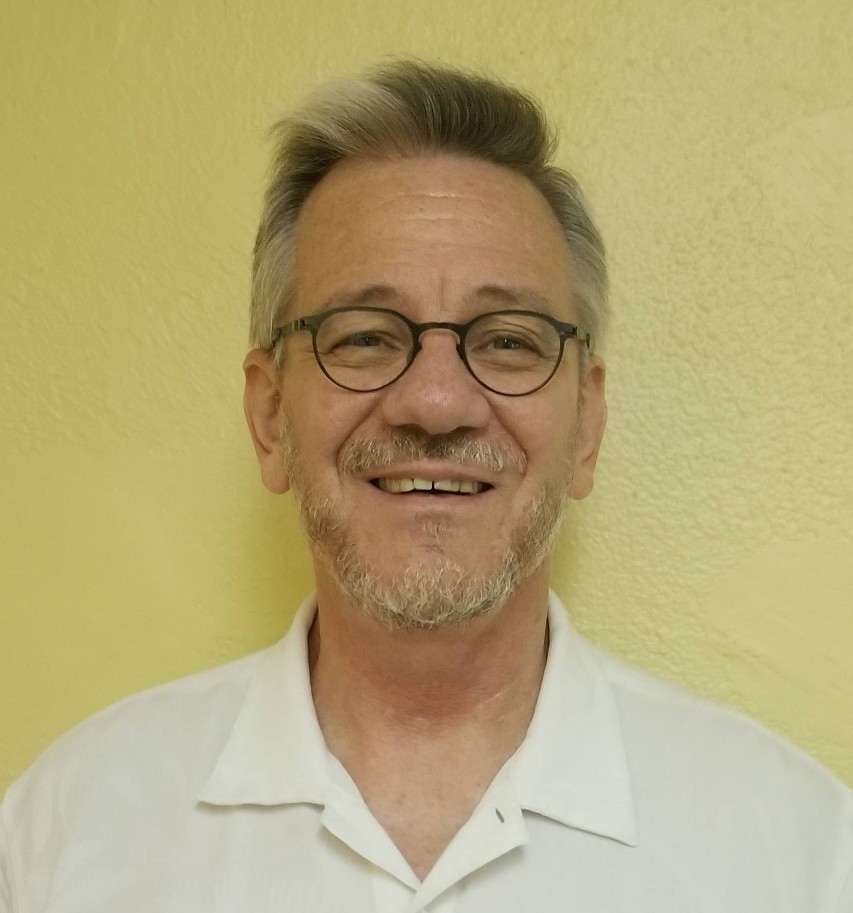
LINDY BACKUES
Philadelphia (PA) Praise Center
Role: Conference-Related Ministry Committee Chair (1st term)
Lindy Backues, PhD, is Associate Professor of Business and Leadership at Eastern Mennonite University. Previously he served for 13 years as Associate Professor of Economic Development at Eastern University and for 18 years in Indonesia as an economic/community development theorist and practitioner. He speaks the Indonesian language fluently. Backues has written extensively in the fields of theology, anthropology, and grassroots development. He is Chair of the Advisory Board for the Christian-Muslim Relations Team (CMRT) of Eastern Mennonite Missions and serves on the editorial board for the anthropological journal “On Knowing Humanity.” He is also an ordained minister of Mosaic Conference.
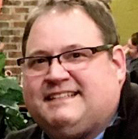
MICHAEL HOWES
West Swamp Mennonite (Quakertown, PA)
Role: Ministerial Committee Chair (1st term)
Michael Howes grew up in the bayou country of southern Louisiana and studied religion at Baylor University before earning his Master of Divinity in Fort Worth, Texas.
Since 1991, Michael has been serving as a pastor in a variety of settings—rural, urban, and suburban—across Texas, Maryland, and Pennsylvania, and since 2019 at West Swamp. Michael is happily married to Rev. Sue Conrad Howes, who works as a mental health chaplain. Michael has two wonderful young adult children, Michael and Emily.
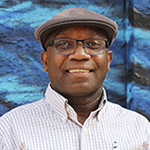
EMMANUEL MWAIPOPO
Nueva Vida Norristown (PA) New Life Mennonite
Role: Intercultural Committee Chair (1st term)
(Currently completing a vacated term as Chair)
Emmanuel Mwaipopo was born in Tanzania. Although his mother was a Mennonite, he was raised in his father’s Roman Catholic tradition. He moved to the US in his 20s to attend Temple University in Philadelphia, PA, where he studied computer information systems. A professor at Temple introduced Mwaipopo to a local Mennonite church in Philadelphia. Later he moved to Norristown, PA where he became involved with Nueva Vida Norristown New Life Mennonite, where he now serves as an elder. Emmanuel is a software engineer and works for Comcast. He and his wife care for four children. In his free time, he plays ultimate frisbee.
Mosaic values two-way communication and encourages our constituents to respond with feedback, questions, or encouragement. To share your thoughts or send a message to the author(s), contact us at communication@mosaicmennonites.org.

